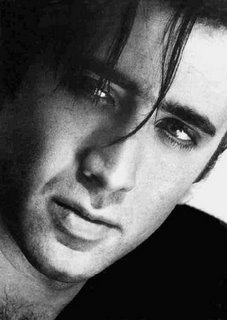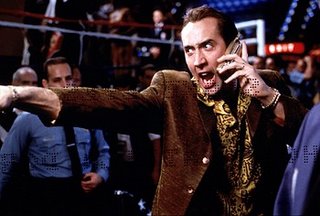
Ben Marcus, a writer and critic of ambitious genre-blurring novels that one might refer to lazily to as "difficult" or, god forbid, Postmodern, makes a good accounting of himself as he protects the good name of experimental fiction in the October 2005 issue of The Atlantic. Not on line, unfortunately, but the issue is worth seeking out for Marcus's essay, which amounts to a smack down of the self appointed protectors of readers against the gurning armies of avant-garders who've taken to writing novels in order to award millions of book buyers migraines. Marcus writes with a sure verbal slap at his avail, and it's a wonder of the intended target, Jonathan Franzen, will ever manage a response.
Jonathan Franzen is a gifted novelist whose last novel , The Corrections , could have used an editor who was unafraid to blue pencil the baggier prose that particular novel contained. Like others of his generation who are uncomfortable with providing what amounts to entertainment for a paying public, Franzen evidently equates length with worth, and thus filled his parody with the most minute things in the world of this horrible family. Everything was mocked relentlessly, continuously, endlessly, and each paragraph seemed to burst with more sarcasm and scorn until you wanted to use novel as a weapon against some defenseless thing. He had some ideas about American culture and what we're doing wrong to each other, so it's strange that his critical slings against William Gaddis and particularly his masterpiece The Recognitions. Gaddis is, from all appearances, the model from which Franzen formed his break through tale. Franzen is a worry wart at heart, one who loves to fret about his own comfort, and it's too his credit that he's a splendid enough writer, most of the time , to make us care about the status of his nerves colliding with the world. His essay collection, How To Be Alone is fine in this regard. It's when he attempts to diagnose the ills of American literature and assign blame (if not a cure) where he becomes a whiner, a sniveler, a sayer of absurd declarations. I am with Ben Marcus on this matter, which is to say that the novel is in relatively good shape and that the point of concern, regardless of style or ideology, needs to be on a writer's talent.These debates about the absolute state of writing have been going on in my life for years, and the result has been to make me , perhaps, a bit of a social retard, one who sees life from a sadly short sighted lens.
When I read Franzen's Strong Motion and The Corrections, there was no reason for me to assume that he was someone who wanted to be general reader's guardian against the legions of literary experimenters whose books he imagines are causing the destruction of coherence and common sense. Franzen, a novelist of ideas no less than those he critiques as too heady and thereby dangerous --DeLillo, William Gaddis-- seemed to be one of the smart one of those writers who felt compelled to make the readers labor for the treasure embedded in his books. His writing is not composed of short sentences, his descriptions are not taciturn, his metaphors are not of the kitchen-sink variety. He seemed more than willing to be mistaken for William Gaddis Jr.
Now he renounces his love of Gaddis and re-introduces himself to America as the reader's best friend, a writer who has a"contract" with his readers with he he promises never to stray from the conventions of good form and so worry the expectations of readers soured on experiment and genre-blurring. It's a rant that gets resurrected every five years or so--Norman Mailer, Gore Vidal, and Tom Wolfe have all taken their major shots at other writers in an effort to decry the decline of contemporary fiction at the hands of various invading goons, geeks and smarty pants stack mongers. The terms change, the cures vary, but the diagnosis is always the same, "novels today suck",and the death of the novel is always near. Franzen's fretting in his lengthy list of complaints seems more self-serving than anything else; the flap over the Oprah Book Club is something he feels , evidently, that he must recover from. But all this fawning over what he assumes are middle brow audience tastes is unseemly. I agree that it's absurd to demand that a novel be "difficult" or otherwise complicated in order to be considered great. It's just a foolish to insist that plain-speaking is the only way great ideas get addressed in fiction. More than anything the issue seems a dust up between very few writers who delight in tweaking each other at length over things that are finally so much energy spent going down the wrong road.It's a handy issue on which to hang a polemic, but it avoids the more difficult issue at hand, the discussion of style.
Curious readers themselves have no difficulty reading so-called difficult writers like Don DeLillo or Salmon Rushdie and then switching without controversy to more conversational scribes like John Cheever or Lorrie Moore so long as the author displays a mastery of personal style that makes what the author is trying to do worth the read. Hemingway, I realized in college, was more than over-the-counter prose sans verbs , adjectives and metaphor and that his mastery of language, his crafted selection of words enabled him to get across(in his best writing) his notions of bravery, honor and personal code as felt experience without arm-waving or excessive bathos. Faulkner, contrarily, had a dense style beholden to cinematic flashbacks,William James' notion of the mind as stream-of-conscious in which the world is perceived through a plurality of associations,and a Bergsonian concepts of interior time ,all heady influences that might make a novel unwieldy and daunting, fiction that is rich less for straight forward morality plays and situation comedies that finally resolve themselves and affirm a vague faith in invisibly dispensed justice but more about the sheer rhythm, pace and texture of experience, the actual duration of time and thought between plot actions. It is daunting, of course, but there is the argument that exposure to and a taste for problematic fiction, fiction that does not rest on conventional expectation, helps a reader think through problems that have more symbolic complications than tactical ones. There is that hope that a reader lands somewhere on their feet after tackling the tides and and eddies of Faulkner's novels and recognizes that life isn't a series of problems to be solved as if it were a take home math test; empathy is the word here, and it is the story less revealing that would have us speak to one another a bit more richly as differences are covered and common ground cleared away. Faulkner's his ability for empathy and poetic description (again, in his best work) moves you along, experiencing something wholly other than the world one lives in.Individual style, how it's developed, and how a mastery of language through style makes a text, conventional or dense,interesting to the ideal reader is more difficult to discuss than the cleverly coined dismissals of ideas one doesn't like.






